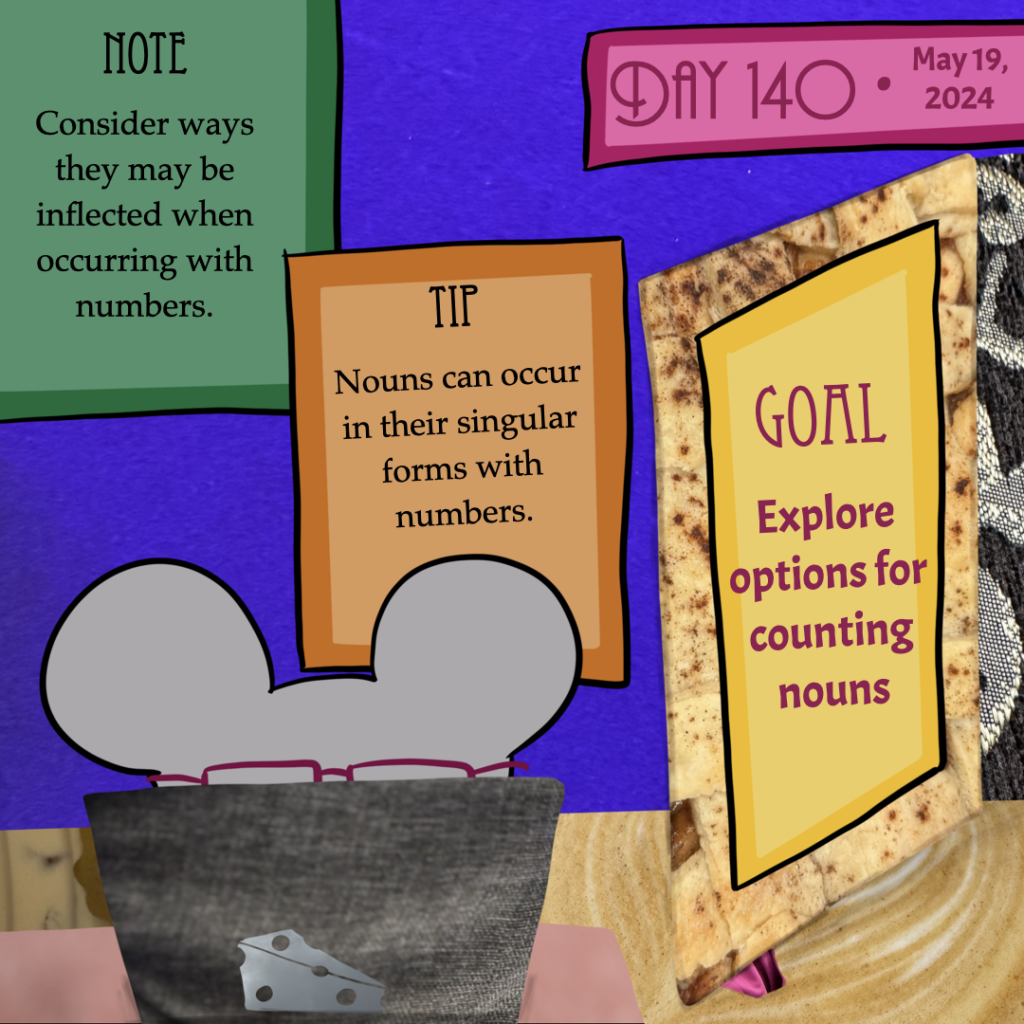
Goal: Explore options for counting nouns
Note: Consider ways they may be inflected when occurring with numbers.
Tip: Nouns can occur in their singular forms with numbers.
Work focus: Learn/Brainstorm/Try
Numbers can work differently from other words in language—so much so that they are not easily categorizable as one lexical category or another. In some languages, they are more like specifiers (i.e. more like determiners), but in others they behave more like modifiers. Their unique status can also affect the shapes of the nouns that occur with them.
In English, a singular form occurs with “one” but plural forms occur with “zero” and any number over one, as in “zero apples, one apple, two apples.” However, in other languages, “zero” occurs with a noun in its singular form.
In some languages, all nouns that co-occur with a cardinal number appear in their singular form, as in “zero apple, one apple, two apple,” and so on. The number itself provides the necessary information about whether the noun is best interpreted as singular or plural, so no extra marking is needed.
Another possibility is to require nouns to occur in a particular case when being counted, such as in Finnish, where counted nouns occur in the partitive case (the singular partitive, to be precise).
Use today to explore options and think about how you want your noun phrases to work when you’re counting nouns.
